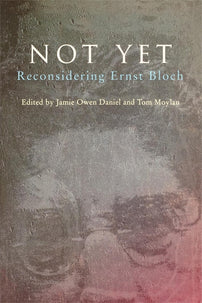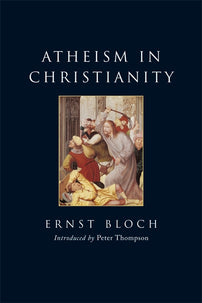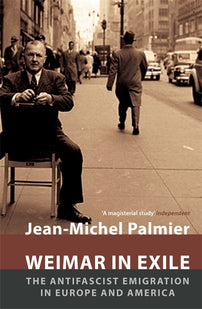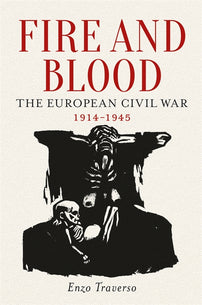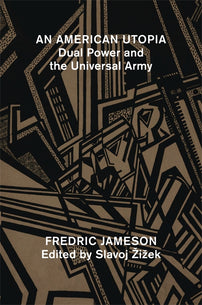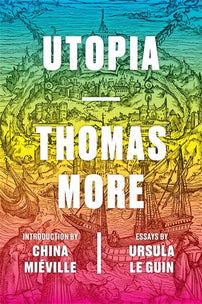Ernst Bloch — Francesc Abad: Correspondences
There is something both refreshing and salutary in rediscovering Ernst Bloch, the philosopher of utopia, at this most anti-utopian age.

This text by Enzo Traverso was written as a catalogue essay for Ernst Bloch: Espai per a la utopia, a 2010 project by Catalan artist Francesc Abad.
There is something both refreshing and salutary in rediscovering Ernst Bloch, the philosopher of utopia, at the most anti-utopian age which humankind has ever experienced since the advent of early modernity. For the author of The Principle of Hope, the dreams of a better world arise from the tensions of an “non-synchronic” world, in which different and sometimes antipodal temporalities, belonging to different eras, coexist in a same social space. In his view, this heterogeneous structure of historical time — he called it Ungleichzeitigkeit — is the source of utopian thinking and imagination, in which the past and the future merge to invent new aesthetic and intellectual configurations. The age of globalization, however, does not know any “non-contemporaneity;” it annihilates any temporal clash between past and future by absorbing them into the eternal present of market consumption and the universal reification of human relationships. Neoliberalism does not allow any dream of collective emancipation; it only admits the “privatization” of utopias into a world grounded on individualism and competition. Its time runs as fast as the stock exchange, but it does not have, one could say with the words of Reinhart Koselleck, any “prognostic structure.” It is the time of a dilated, extended and unlimited present, the “homogeneous and empty” time of the twenty-first century, whose spiritual vacuum is filled by the spasmodic ballet of commodities. Utopian imagination — dreaming of a different world — violently clashes with the anthropological habitus of the neoliberal homo economicus.
Thus, the rediscovery of Ernst Bloch nowadays requires an “untimely” spirit, a creator who does not fit the shining façade of our contemporaneity, an artist whose work consists primarily in excavating the past as an inexhaustible reservoir of experiences, ideas, and objects that bear witness to the search for a liberated future: imprints, evidences, traces (Spuren) of collective dreams, the “images of desire” (Wunschbilder) that depict a community of free and equal human beings. The Principle of Hope, a three volumes book which is an impressive encyclopedia of utopias from Antiquity to the twentieth century, is paradoxically deprived of any prediction of a future world. It is rather a historical investigation of the “future pasts,” a critical inventory of the innumerable ways in which people have imagined or “anticipated” the future throughout the ages. This dialectical journey into the past looking for the future transforms Bloch into a kind of archeologist who, displaying an incredible erudition, patiently detects and recomposes the “daydreams” (Tagträume) of our ancestors: exhibitions, circuses, dancing, travels, novels, folklore, tales, poetry, paintings, operas, popular songs, movies… Bloch analyzes the utopias inscribed into the entire spectrum of human knowledge, from medicine to architecture, passing through aesthetics and technology. However, this collector is far from being a naïve humanist. He neither believes in automatic progress nor idealizes the results of science. He does not simply classify utopias, distinguishing between technical, geographical, social, and political utopias, insofar as his historical reconstruction is as empathically selective as it is analytically critical. On the one hand, there is the “cold stream” of utopias prefiguring a hierarchical, authoritarian and oppressive order like Plato’s Republic, Saint-Simon’s “Nouvel Ordre Industriel,” and Etienne Cabet’s Icaria, a frightening pre-totalitarian microcosm; on the other hand, the “warm stream” of libertarian and communist utopias well represented by Thomas More, Charles Fourier, and Karl Marx: respectively the most inspired Renaissance humanist, the inventor of the Phalansteries as realms of the harmonious coexistence between nature and technology, and the thinker of human emancipation through the class struggle. In the twentieth century, the apocalyptic age of wars and revolutions, utopias had become both concrete and possible, abandoning their previous character of abstract fantasy. At the end of the Great War, when he wrote The Spirit of Utopia, he put revolution on the agenda; between the 1930s and the 1950s, he believed in Soviet communism; after 1956, his hopes were fixed on a new rebellious generation. In his view, Marxism was more a utopia than a “science,” since it accomplished — secularizing them — the redemptive aspirations that for centuries had been embodied by religious movements, from Messianic Judaism to Christian chiliasm. Bringing the secular hope of a classless society, he concluded, Marxism was a form of “religious atheism.”
It was inevitable that, after almost two decades of conceptual and aesthetic dialogue with the work of Walter Benjamin, Francesc Abad would meet Ernst Bloch. His conceptual art establishes a fruitful, symbiotic relationship with both of them, becoming an aesthetic intersection point between Benjamin’s vision of history and Bloch’s definition of utopia. This is not a hidden dimension of his work, rather a conscious network of elective affinities. Napas, his last exhibition on the artifacts made by weaving and crocheting natural or synthetic fibers at Terrassa factories, explores the lost realms of artisanal labor, industrial architecture, human creations, class struggle, and personal experiences. Its images and materials build the landscape of a social and human universe today engulfed by global capitalism, but these realms of memory transmit the hopes and the utopian imagination of a social world that no longer exists. And this archeological excavation joins the current struggles against the amnesic and anti-utopic time of globalization. In fact, Ernst Bloch’s definition of utopia as “the not-yet-conscious” and the “not-yet-fulfilled” perfectly fits the art of Francesc Abad. Both of them start from the recognition that “the authentic in man and the world is potential, waiting, living in fear of being frustrated, living in hope of succeeding.”
[book-strip index="1" style="display"]
